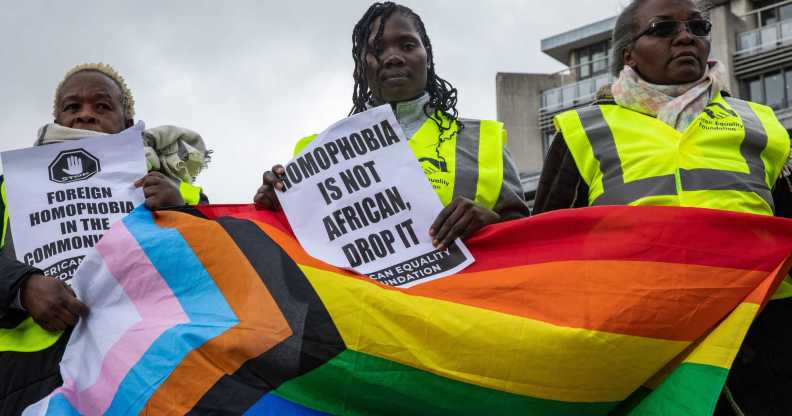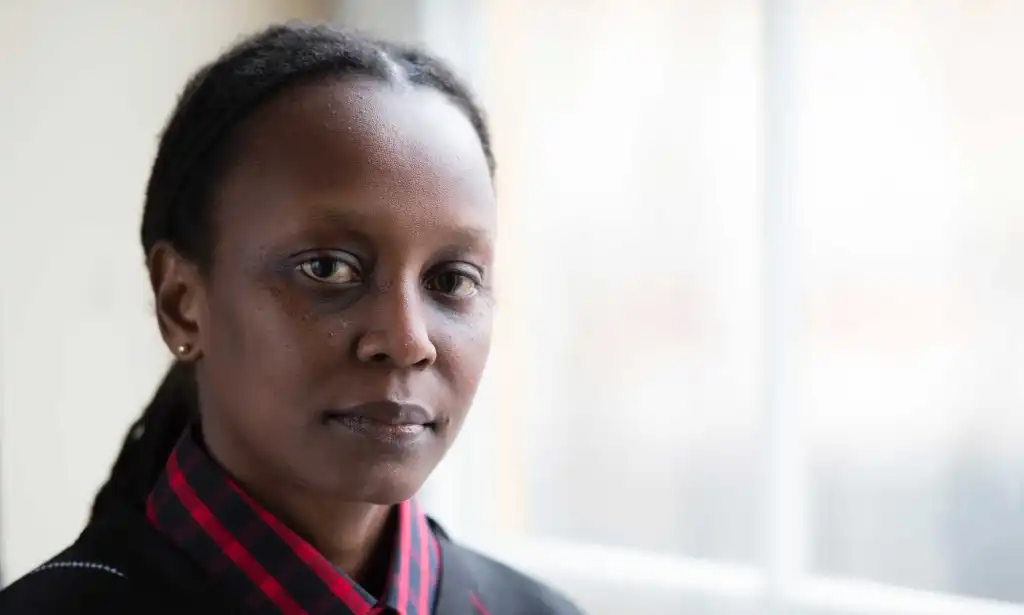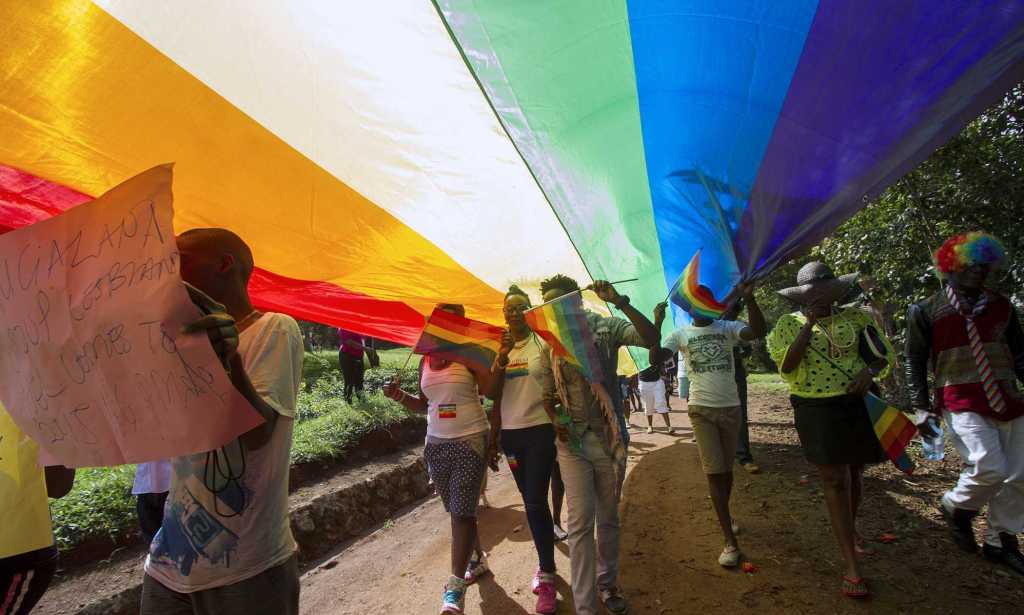LGBTQ+ Ugandans ‘shaken, worried and scared’ after government criminalises homosexuality

Ugandan LGBTQ+ activists have blasted a new bill that could see LGBTQ+ people sentenced to death. (Mark Kerrison/In Pictures via Getty Images)
Ugandan LGBTQ+ activists have blasted a new bill that could see LGBTQ+ people sentenced to death. (Mark Kerrison/In Pictures via Getty Images)
LGBTQ+ activists from Uganda have blasted a draconian new bill that criminalises LGBTQ+ life and could see gay people sentenced to death, saying queer people in the country are “shaken, worried and scared.”
On Tuesday (21 March), Uganda’s parliament passed the Anti-Homosexuality Bill, a strict piece of legislation that expands on the East African nation’s already archaic laws on homosexuality.
Both sides of Uganda’s government supported the bill, with cheers and applause taking place after it was passed.
The new bill would see simply identifying as LGBTQ+ become illegal, with the death sentence possible for those found guilty of “aggravated homosexuality”.
Additionally, allies of the LGBTQ+ community and the wider Ugandan population could also face jail time for knowing about someone being involved in same-sex behaviour and not reporting it to the authorities.
Around the globe, reaction to the legislation has been swift, with UN high commissioner for human rights, Volker Türk, urging Ugandan president Yoweri Museveni not to sign the bill into law.
This view is shared by US secretary of state Antony Blinken who on Wednesday (22 March) tweeted that the bill would “undermine fundamental human rights of all Ugandans and could reverse gains in the fight against HIV/AIDS”.

Speaking with PinkNews, Ugandan LGBTQ+ activist Kasha Nabagesera – who is currently based in the United States – described the passage of the bill as a “really trying period” which has left the LGBTQ+ community in the country as “shaken, worried and scared”.
Nabagesera explained many people are already boarding buses and attempting to cross the border into Kenya to escape the “barbaric” legislation.
Like many other activists, Nabagesera is already working on ways to fight the bill and is meeting “24/7” with legal allies and partners in the country.
The broad nature of the legislation means it does not just impact the LGBTQ+ community but everyone in Uganda, including human rights organisations working in the region.
Nabagesera explained bill could be used as a blackmail tool and a means of discrediting one’s enemies.
“Someone can simply just say that they suspect you to be homosexual and by the time the evidence and investigations take place, you’ve already been destroyed,” she explained.
“You’ve already been stigmatised because in our community many people have just been paraded in the media for being suspected of being gay. So, you can imagine now with the bill people are going to do all sorts of injustices and abuses with impunity.
“It is very problematic, and it’s a very big worry and all governments should be worried.”
In Uganda itself, LGBTQI+ Human Rights Organisation Let’s Walk Uganda said the legislation has “already triggered a steep increase in homophobic violence” in the country.
Edward Mutebi, founder of Let’s Walk Uganda, said in a statement: “The passing of the bill is to be condemned as an essentially inhumane act.
“The international community needs to take concerted action so that the bill does not become into action.
“It must however equally prepare for the worst case: governments and civil society organisations must support community organisations in place and legal options for safe flight for people in acute danger.”

Issuing a message to her community back home, Nabagesera said that when they started a movement for LGBTQ+ rights they knew it was “not going to be easy”.
She said: “Over the years, we’ve been able to make some strides together in solidarity. We just need to continue to be there for each other and to check on each other, to see if everyone is safe and how everyone is doing.
“But also, not to despair because what we are doing as a movement is not extraordinary, other movements around the world have done it before.
“We should get some hope from past movements from around the world that one day, this shall pass. Let’s just keep strong but also vigilant because we need to be safe for us to continue the struggle.”
Nabagesera added: “I feel horrible that in this trying time I’m far away from [Uganda’s LGBTQ+ community] but as soon as my health is better, I will rejoin the community as soon as possible.”

